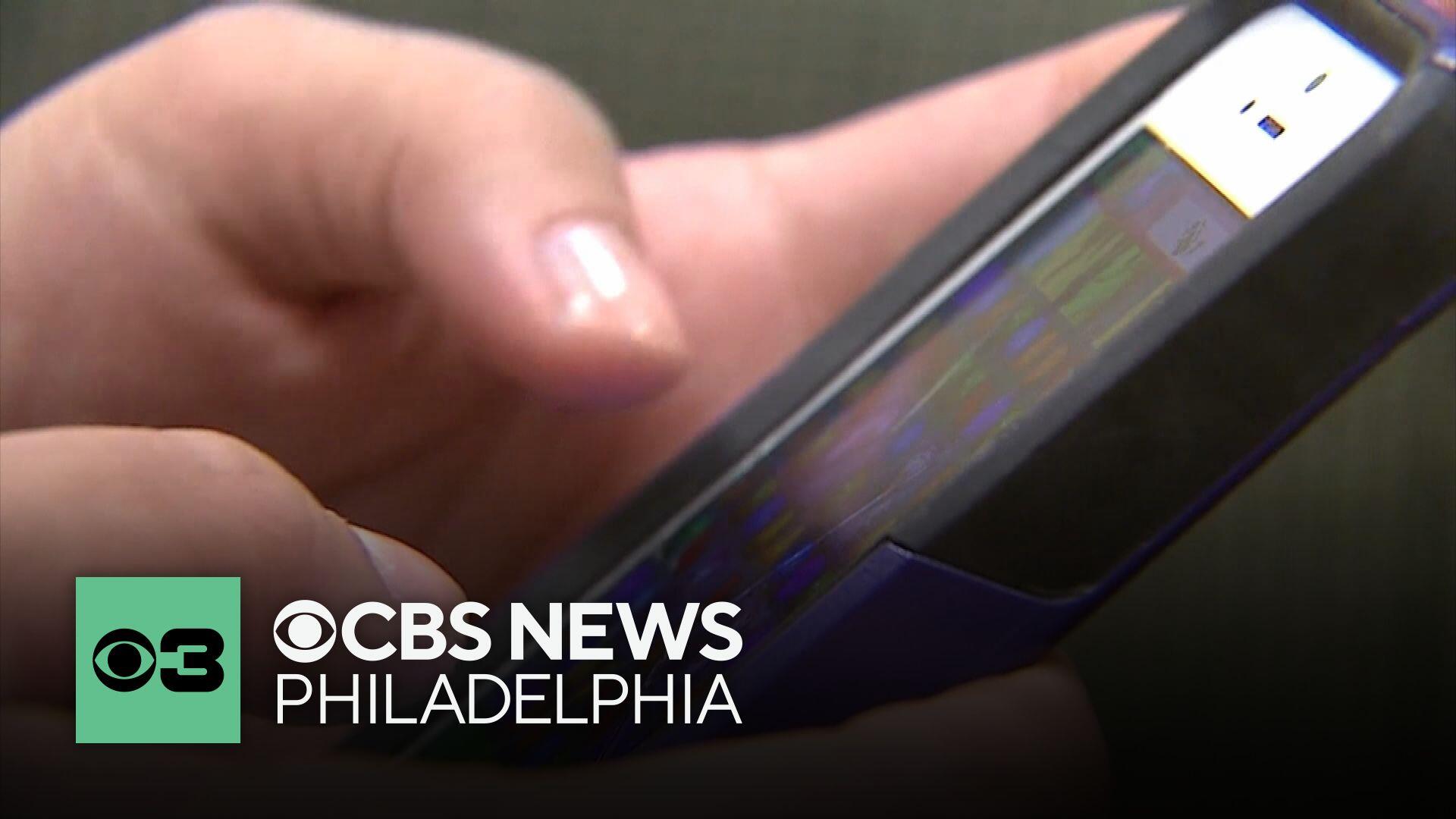An incoming call from a family member turned into a terrifying extortion scam. How to keep your money safe.
It's a scam you're probably not prepared for: You receive an incoming call that your cellphone says is from a family member, but it turns out to be someone threatening your loved one and demanding money.
It was a normal Saturday afternoon when Brittany's sister said she was going to the grocery store. Then, about five minutes after her sister left the house, Brittany said she got a call from her sister. Her name and picture came up as usual but when she answered, it wasn't her sister, it was a man.
"He's basically saying, 'Hey, I don't want to hurt her, but I really need money, and I really need you to Zelle me $750,'" Brittany said.
Brittany, who doesn't want CBS News Philadelphia to use her last name or show her face out of fear she could be targeted again, said the man said he was holding her sister hostage and if she didn't pay up, he would shoot her in the face.
"You hear a person coughing and screaming in the background. I think it's my sister ... she's hurt," Brittany said. "She's just screaming and crying."
Since Brittany and her sister share their locations with each other through their iPhones, Brittany could track her sister close to the grocery store. She decided to get in the car and head that way while also trying to send $200 through a digital wallet app called Cash App, but the app warned her.
"It's saying that it's a scam, and he said 'say pay anyway,' so I did. I hit 'pay anyway,' it sends but then it immediately gets refunded back to me," Brittany recalled.
When the transaction didn't go through, Brittany started to realize this situation might not be entirely real.
"But I kept going to, it's my sister's picture, it's my sister's phone number, I have to take it somewhat serious," she said.
Brittany said she was desperately trying to find her sister in the store, all while his demands continued. Eventually he asked for her birthdate and social security number, so she made up information and he hung up. Then, she called her sister.
"She says, 'Hey, what's up?' ... I just broke down," Brittany said.
Pennsylvania Attorney General Dave Sunday encourages people to report any potential scams to law enforcement and his office.
"These are scams where the bad guys will find information about you on the internet, on social media, and they will find a way to send you an email, a text message or something with the sole purpose to get you to click onto a link that you shouldn't click on, and the whole reason for that is because once you click on that link, it will download tons of information that they can obtain about you," Sunday said.
With so much of our information out there on the internet and scammers looking to hack our accounts, the techniques are very sophisticated, and a malicious link could be the key to accessing the contacts list on your phone and then spoofing an incoming call.
READ MORE: Scam job postings are on the rise. Here's what to know before you apply
Sunday said, "We have heard many, many, many other scams that are closely related. They use a lot of the same technology and a lot of the same methods to scare people into giving money to scammers."
Cash App and other peer-to-peer payment platforms have started using artificial intelligence technology to flag potential fraudulent transactions. Sometimes it's just a warning to the consumer, but it can also prevent the exchange altogether, which is what happened in Brittany's case.
Sunday recommends having a password or code word with your loved ones, so if they're ever really in trouble, they have to say that word.
The FCC offers best practices to avoid scams like this:
- Don't answer calls from unknown numbers. If you answer such a call, hang up immediately.
- If you answer the phone and the caller — or a recording — asks you to hit a button to stop getting the calls, you should just hang up. Scammers often use this trick to identify potential targets.
- Do not respond to any questions, especially those that can be answered with "Yes" or "No."
- Never give out personal information such as account numbers, Social Security numbers, mother's maiden names, passwords or other identifying information in response to unexpected calls or if you are at all suspicious.
- If you get an inquiry from someone who says they represent a company or a government agency, hang up and call the phone number on your account statement, in the phone book, or on the company's or government agency's website to verify the authenticity of the request. You will usually get a written statement in the mail before you get a phone call from a legitimate source, particularly if the caller is asking for a payment.
- Use caution if you are being pressured for information immediately.
- If you have a voicemail account with your phone service, be sure to set a password for it. Some voicemail services are preset to allow access if you call in from your own phone number. A hacker could spoof your home phone number and gain access to your voicemail if you do not set a password.
- Talk to your phone company about call blocking tools and check into apps that you can download to your mobile device. The FCC allows phone companies to block robocalls by default based on reasonable analytics. More information about robocall blocking is available at .




